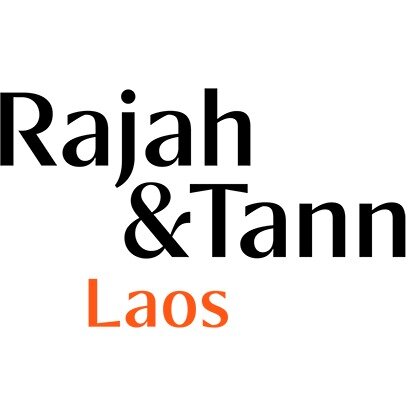Best Tax Lawyers in Laos
Share your needs with us, get contacted by law firms.
Free. Takes 2 min.
Or refine your search by selecting a city:
List of the best lawyers in Laos
About Tax Law in Laos
Tax law in Laos is overseen by the Ministry of Finance and implemented by the Tax Department. The tax system in Laos includes income tax, corporate tax, value-added tax (VAT), and special excise duties, among others. The goal of the tax laws is to promote economic development while ensuring sufficient funds for government operations. As part of ongoing reforms, the Laotian government has been working towards simplifying the tax code to encourage foreign and domestic investments.
Why You May Need a Lawyer
There are several situations where seeking legal advice regarding tax in Laos may be beneficial. For instance, businesses may require legal help to ensure compliance with corporate taxes, VAT, and other obligations. Individuals might seek legal assistance for personal income tax issues, especially if they are expatriates or have complex financial situations. Legal experts can also be crucial when addressing disputes with tax authorities or when an audit is involved. Tax lawyers can help in interpreting the laws correctly and providing guidance on minimizing tax liabilities within the legal framework.
Local Laws Overview
The tax laws in Laos cover several key areas:
Income Tax: Individuals are subject to a progressive tax rate, with rates varying depending on the level of earnings. Both residents and non-residents earning income in Laos are liable for personal income tax.
Corporate Tax: The standard corporate tax rate is a flat rate applied to a company's profits. There are special provisions for businesses in sectors such as agriculture, mining, and export, potentially affecting their tax obligations.
Value-Added Tax (VAT): Laos employs a VAT system where businesses must register and charge VAT on applicable goods and services. Understanding the provisions for VAT registration and compliance is crucial for businesses.
International Tax Agreements: Laos has entered into double taxation agreements with several countries to avoid instances where income is taxed twice.
Frequently Asked Questions
What is the standard corporate tax rate in Laos?
The standard corporate tax rate in Laos is generally set at 20% of net profit but can vary according to specific sectors or incentives.
Are there any tax incentives for foreign investors?
Yes, the government offers various tax incentives to attract foreign investment, particularly in special economic zones and priority sectors such as agriculture and tourism.
What is the process for filing personal income tax?
Individuals must file their income tax returns annually, declaring their earnings and paying any applicable taxes. Tax filings are typically handled at local tax offices.
How does VAT work for businesses in Laos?
Businesses exceeding a certain annual turnover must register for VAT and charge VAT on sales, with the standard rate being 10% on most goods and services.
What are the penalties for late tax payments?
Late payments can incur penalties, including fines and interest on overdue amounts. It's crucial to comply with timely filing and payments to avoid these penalties.
Can I appeal a tax assessment in Laos?
Yes, taxpayers have the right to appeal assessments and decisions made by tax authorities through a structured legal process.
Are there specific taxes for expatriates working in Laos?
Expatriates are subject to personal income tax on any income earned within Laos, and they should ensure compliance to avoid any legal issues.
How is property tax calculated in Laos?
Property tax rates are based on the value of the property and can vary depending on the location and type of the property.
What records should I keep for tax purposes?
Keep detailed records of all income, business expenses, and relevant documentation supporting any claims or deductions you make on your tax returns.
How can I ensure compliance with local tax laws?
Regularly consult with a tax professional or legal advisor to stay updated on any changes in tax legislation and ensure that your filings and payments meet legal requirements.
Additional Resources
If you need assistance, several resources are available to aid your understanding and compliance with Laos tax laws. The Ministry of Finance and the Tax Department provide information on regulations and guidelines. Consultations with local accounting firms or tax advisory services can provide tailored advice. Additionally, international organizations, such as the International Monetary Fund (IMF) and the World Bank, publish reports on the fiscal policies in Laos.
Next Steps
If you require legal assistance with tax matters in Laos, it is advisable to gather all relevant documents and financial records first. Then, consult with a lawyer or tax professional experienced in Laotian tax law. They can provide guidance, represent you in dealings with tax authorities, and help devise a tax strategy that aligns with both local laws and your personal or business goals.
Lawzana helps you find the best lawyers and law firms in Laos through a curated and pre-screened list of qualified legal professionals. Our platform offers rankings and detailed profiles of attorneys and law firms, allowing you to compare based on practice areas, including Tax, experience, and client feedback.
Each profile includes a description of the firm's areas of practice, client reviews, team members and partners, year of establishment, spoken languages, office locations, contact information, social media presence, and any published articles or resources. Most firms on our platform speak English and are experienced in both local and international legal matters.
Get a quote from top-rated law firms in Laos — quickly, securely, and without unnecessary hassle.
Disclaimer:
The information provided on this page is for general informational purposes only and does not constitute legal advice. While we strive to ensure the accuracy and relevance of the content, legal information may change over time, and interpretations of the law can vary. You should always consult with a qualified legal professional for advice specific to your situation.
We disclaim all liability for actions taken or not taken based on the content of this page. If you believe any information is incorrect or outdated, please contact us, and we will review and update it where appropriate.
Browse tax law firms by city in Laos
Refine your search by selecting a city.












